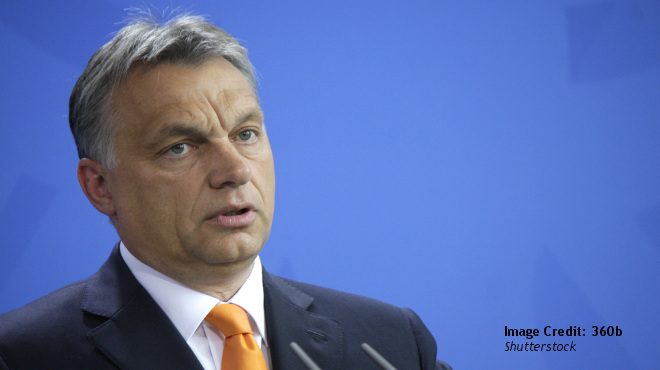Avenues to Europe: China’s Relationship with Hungary

Over the past decade China has demonstrated an ever-increasing interest in both the countries and regional dynamics of Eastern Europe. As a part of their ambitious Belt and Road Initiative (BRI), Beijing has sought to infuse its foreign relations with infrastructure projects that imbue countries in need of economic transformation to pivot towards their development aims. One country that has been a focal point of European debate over the specter of Chinese economic engagement, is Hungary.
Beijing, Budapest and Brussels
The enhanced relationship between China and Hungary has generated concern among European commentators and policy watchers who are wary of the country’s populist shift. Under the leadership of Prime Minister Viktor Orbán, the government of Hungary has become closely associated with institutionalized Euro-skepticism, Islamophobia and alleged corruption. This has raised fears that Beijing may unwittingly be emboldening leaders such as Orbán to pressure Brussels and pursue its own national agenda (without criticism), by dangling the specter of China as an alternative partner.
However, this relationship is not so simple as to be merely a product of Hungarian defiance or a desire by China to capitalize on the country’s isolationism. The BRI and the EU can both be viewed as foreign policy projects aimed at altering the socio-political context within which they operate through economic means, in order to advance long-term goals, albeit in very different ways. However, the ways in which EU Member States interact with what has rapidly become China’s signature foreign policy project can prove illustrative of future relations. Perhaps tellingly, the space devoted to exploring Sino-EU relations receive short shrift in President Xi Jinping’s seminal “The Governance of China Volume II,” while Hungary is the only European country cited as part of effort to coordinate national development plans in a separate chapter.
There is a grander project at play here, which has given EU politicians cause for concern, which is the Sixteen plus One Framework (16+1). Officially launched at a 2012 summit in Warsaw, the idea was to foster regional cooperation by enhancing trade ties and infrastructure integration in sixteen Central and Eastern European Countries. Ostensibly, this would allow for better cross-border cooperation and full completion of projects like the Budapest – Belgrade railways, while at the same time allowing Beijing to effectively structure its investments and engagement to the region. For Hungary, this has become an opportunity
Sino-Hungarian Relations: Towards Peace, Growth, Reform and Civilization?
China has signaled its willingness to support Hungary’s national development strategy by further integrating it into the BRI. To do this, both sides seek to expand the scale of bilateral trade and investment, as well as deepening infrastructure development and regional connectivity. There have also been signals that Beijing may wish to introduce competitive Hungarian products into its markets, although the issue of access to Chinese domestic markets remains a controversial subject. One area in which Chinese policy makers have been very happy to foster ties, is in the lucrative tourism sector. China and Hungary have both sought to make room for tourist and leisure exchanges, as well as ways to promote people to people connections in areas such as civil aviation and education.
Interestingly, while Hungary has sought to strengthen relations with China under the aegis of the BRI, Hungarian foreign policy under Orbán can also be said to be underpinned with an eastward facing orientation. Budapest has, since it joined the NATO alliance in 1999, cozied up to Moscow and there are indications that Russian influence has made itself felt in Hungarian politics. Perhaps unsurprisingly, this relationship has followed the contours of energy supplies, with the Russian state company “Rusatom” playing a key role in expanding Hungary’s “Paks Nuclear Power Plant”. This, coupled with overtly supportive statements to Turkey’s President Erdogan and India’s Prime Minister Modi, and not least Orbán’s comments about “illiberal democracy”, have fostered concerns both within Hungary and Europe that Budapest is seeking to forge an authoritarian alliance.
Hungary’s enthusiastic embrace of the 16+1 Framework and often raucous relationship with the EU has engendered suspicions of Budapest’s ambitions. Reports in the German newspaper Handelsblatt that the Hungarian ambassador refused to join his EU colleagues in signing a joint letter criticizing the BRI has stoked fears among European politicians that Beijing may be pursuing a divide and conquer policy within the EU, by courting individual states. However, at least one study into Hungarian media found that the overwhelming majority of articles portrayed China in a neutral light, though with a slight inclination towards negative coverage of China. Overall, much of the discourse focused on economic rather than political relations with China, and it appears likely that the Prime Minister is paying lip service to Beijing’s political position rather than crafting diplomatic positions to make his government a permanent fixture of the CPC’s policies.
Asking the Right Questions
While there is a lingering notion that Chinese supported initiatives in Hungary may amount to a Trojan Horse attempt to undermine EU norms, the fears felt in Western European states may reveal more about political relationships within the EU and Budapest than Chinese strategic thinking. Opacity and widespread graft certainly exist in Hungary and this could lend itself to practices that can have a deleterious effect on the long-term health of the country’s economy and society.
For this reason, foreign investment practices and engagement should justifiably be subject to public scrutiny, especially in politically sensitive arenas such as infrastructure and energy supply. The recent warnings from the U.S. to Hungary and other allies that they should pull out of their 5G network contracts with Huawei due to concerns of the information security threats the company could cause, is testament to this. Alongside this, Hungarian political leaders and Chinese investors should not be encouraged to cry Sinophobia whenever more light is being shed on the contours of 16+1 engagement.